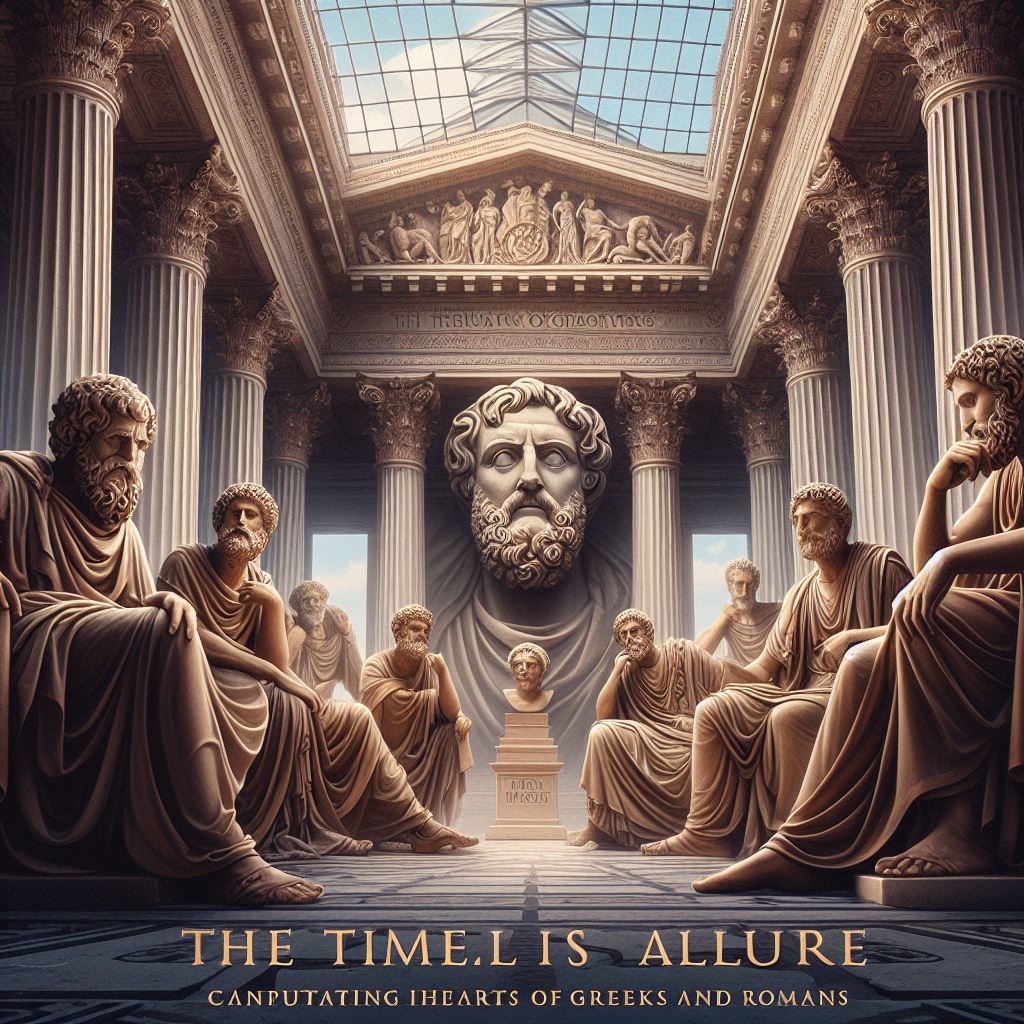The Timeless Allure of Stoicism: Captivating the Hearts of Ancient Greeks and Romans
Stoicism has stood the test of time, captivating generations of thinkers and philosophers across the globe. Originating in ancient Greece and later gaining traction in Rome, this philosophical school of thought has left an indelible mark on Western civilization. Its fundamental teachings, emphasizing self-discipline, tranquility, and the pursuit of virtue, have resonated with countless individuals throughout history. From great thinkers like Marcus Aurelius and Seneca to ordinary individuals seeking solace and guidance, Stoicism has offered a timeless allure that transcends the boundaries of time and culture. In this article, we delve into the origin, core tenets, and lasting impact of Stoicism, exploring why it continues to captivate the hearts of ancient Greeks and Romans as well as modern enthusiasts.
Understanding the Philosophy of Stoicism: An In-depth Study of Ancient Greeks and Romans
Stoicism, an ancient philosophy that originated in Greece and later spread to Rome, holds great significance in understanding the mindset and values of these civilizations. This philosophical school, founded by Zeno of Citium in the 3rd century BC, aimed to provide practical guidance for living a virtuous life by focusing on the cultivation of wisdom, courage, temperance, and justice.
The Enduring Appeal of Stoicism: How this Ancient Philosophy Continues to Resonate with Modern Minds
Despite its ancient origins, stoicism has stood the test of time and continues to resonate with modern minds today. The teachings of Stoic philosophers such as Epictetus, Seneca, and Marcus Aurelius offer valuable insights into how to navigate the challenges of life with grace and resilience. The emphasis on accepting and embracing events beyond our control, while maintaining a focus on the development of moral character, appeals to individuals seeking a balanced and fulfilling existence.
Exploring the Fascination of Stoicism: Unveiling its Influence on the Souls of Ancient Greeks and Romans
Stoicism captured the hearts and minds of ancient Greeks and Romans by offering a philosophy that addressed their deep longing for meaning and fulfillment. This philosophy provided solace during times of war, political turmoil, and personal struggles. Stoicism’s emphasis on self-control, inner peace, and a focus on what is truly important in life resonated with the souls of these ancient civilizations, providing them with a framework for navigating the complexities of their world.
Digging into the Timeless Allure of Stoicism: Unraveling its Lasting Impact on Ancient Greek and Roman Societies
Stoicism’s lasting impact on ancient Greek and Roman societies can be seen in how it shaped their values, ethics, and social structure. The Stoics’ emphasis on moral virtue, duty, and the pursuit of knowledge influenced the governing principles and policies of these civilizations. Stoicism also played a role in personal relationships, shaping attitudes towards family, friends, and even adversaries. Its enduring allure lies in its ability to offer guidance on leading a good life, even in the face of adversity.
Unveiling the Lasting Influence of Stoicism: How this Philosophy Continues to Captivate the Hearts of Ancient Greeks and Romans
Stoicism’s enduring influence on the hearts of ancient Greeks and Romans can be attributed to its accessibility and power in providing individuals with a practical framework for living a virtuous life. The Stoics’ emphasis on self-discipline, mindfulness, and the control of one’s emotions resonates with people from all walks of life, even in the modern era. By maintaining a focus on what is within our control and accepting what is not, stoicism offers a timeless philosophy that continues to captivate and inspire individuals seeking meaning, resilience, and personal growth.
Stoicism: A Philosophy for the Ancient Greeks and Romans
Ancient Stoicism
- Stoicism founded by Zeno of Citium in Athens, Greece in the early 3rd century BCE
- Gained popularity among ancient Greeks and Romans
Stoic Philosophy
- Path to happiness and inner peace lies in accepting and adapting to the natural order of the universe
- Emphasizes self-control, perseverance, and pursuit of virtue
Stoic Ethics
- Virtue and moral excellence as ultimate life goals
- Alignment of actions and thoughts with moral principles such as wisdom, justice, courage, and moderation
Stoic Disciplines
- Encourages introspection, self-discipline, and control over emotions
- Practiced techniques like negative visualization to appreciate what they have
Influence on Roman Empire
- Stoicism took root in Rome during the 2nd century BCE
- Influential among philosophers, statesmen, and citizens
- Practiced by Roman emperors like Marcus Aurelius and Seneca the Younger
Stoicism’s Appeal
- Practicality and focus on personal development
- Offered solace and contentment in a chaotic and unpredictable world
- Encouraged individuals to focus on what they can control
Stoic Literature
- Ancient Stoics left behind a rich collection of writings
- Guides for living a virtuous life
- Notable Stoic writers include Epictetus, Seneca, and Marcus Aurelius
Legacy of Stoicism
- Continues to resonate with people in modern society
- Principles of resilience, mindfulness, and self-improvement
These points should provide a good starting point for further research on Stoicism and its appeal to the ancient Greeks and Romans.

In conclusion, the enduring appeal of Stoicism in ancient Greek and Roman societies cannot be underestimated.
Its emphasis on personal strength, virtue, and self-control resonated with individuals across all walks of life.
From philosophers to statesmen, Stoicism presented a practical approach to navigate the complexities of life, offering solace and guidance during turbulent times.
The philosophy’s timeless allure lies in its ability to address fundamental human concerns, providing a framework for moral living and encouraging individuals to find inner peace amidst external challenges.
Although centuries have passed since its inception, Stoicism continues to captivate hearts and minds as its principles remain relevant in today’s world.
Its emphasis on the importance of the individual and the cultivation of one’s character offers invaluable insights for navigating the modern complexities of life, making Stoicism as captivating and influential today as it was thousands of years ago.
